Trump Unveils His Board Of Peace In Davos: A Replacement To The UN Or A US-Led Coalition Of The Willing?
On the second and final day of his visit on Jan. 22, U.S. President Donald Trump released the Board of Peace charter, which is part of the peace process between Israel and Hamas to end the war in Gaza.
The White House on Jan. 16 named several members of the Trump administration, as well as international leaders, to positions within the Board of Peace, which aims to provide strategic insight, mobilize international resources, and ensure accountability during Gaza’s transition and reconstruction.
Trump will chair the board, which will be tasked with overseeing the next phase in Gaza. Dozens of countries have been invited to join.
As Emel Akan reports for The Epoch Times, members will be tasked with managing the Gaza Strip’s “governance capacity-building, regional relations, reconstruction, investment attraction, large-scale funding, and capital mobilization,” according to the White House.
During a Jan. 20 White House press conference, Trump said the Board of Peace might end up replacing the United Nations.
“I wish the United Nations could do more. I wish we didn’t need a Board of Peace,” Trump told reporters.
“The U.N. just hasn’t been very helpful. I’m a big fan of the U.N. potential, but it has never lived up to its potential.”
Despite criticizing the U.N., Trump didn’t call for the dissolution of the international body.
U.S. Secretary of State Marco Rubio, special presidential envoy Steve Witkoff, Trump’s son-in-law Jared Kushner, and former British Prime Minister Tony Blair are among those tapped to serve on an executive board for the Board of Peace. Others on the executive board are private equity executive Marc Rowan, World Bank Group President Ajay Banga, and U.S. deputy national security adviser Robert Gabriel.
The Board of Peace will include a National Committee for the Administration of Gaza, led by Palestinian Authority official Ali Abdel Hamid Shaath.
President Donald Trump speaks during a reception for business leaders at the World Economic Forum (WEF) Annual Meeting in Davos, Switzerland, on Jan. 21, 2026. Chip Somodevilla/Getty Images
Nikolay Mladenov, a Bulgarian diplomat and former U.N. envoy to the Middle East, has also been named to serve as the high representative for Gaza. This role entails acting as a link between the Board of Peace and the National Committee for the Administration of Gaza.
As part of the peace process, Hamas has agreed to disarm.
During his remarks to the World Economic Forum in Davos, Trump said failure to comply would result in severe consequences, saying Hamas will “be blown away.”
“We have 59 countries that are part of that whole peace deal,” Trump said during his speech.
“And they want to come in and take out Hamas. They want to come in. They want to do whatever they can. There’s a problem with Hezbollah in Lebanon. And we'll see what happens there.”
Additionally, as Andrew Korybko details below, Putin might accept Trump’s invitation to participate in order to avoid offending him and not lose a seat at the table where members provide input on US policy towards settling various conflicts.
Kremlin spokesmen Dmitry Peskov confirmed that the US invited Putin to join the Board of Peace, which refers to the UNSC-endorsed Trump-chaired group for implementing his Gaza peace plan.
Interestingly, Gaza isn’t mentioned anywhere in its charter, thus lending credence to some observers’ assessments that Trump envisages it de facto replacing the UN upon broadening its scope with time.
That same charter also grants enormous power to the group’s Chairman, the first of which will be Trump.
He’s the only one who can invite countries to join, terminate their membership, select the Executive Board, approve decisions (without which they won’t enter into force), veto decisions at any time even after they’re already being implemented, and has full power over subsidiary entities, et al.
Just as importantly, he also chooses his successor, who automatically replaces him once he ends his duties. Trump will basically run the Board of Peace like Mar-a-Lago, which has obvious pros and cons.
On the positive side, this group might actually get things done, unlike the UN. After all, Trump’s companies have a track record of tangible accomplishments, and taking full responsibility for everything motivates him to ensure that this effort doesn’t fail otherwise it’ll stain his legacy. On the negative side, all members have to defer to Trump, which some might consider humiliating. They might still tolerate it for the sake of rebuilding Gaza, however, but then leave after three years’ time.
The last point segues into the clause about how the invitees can serve for three years free of charge but then have to leave the group unless they pay $1 billion within the first year to become permanent members.
This money will go towards rebuilding Gaza. It’s also possible that the Board of Peace amends the charter to mandate a smaller amount with Trump’s approval. In any case, becoming a permanent member legally buys influence with Trump, but it doesn’t guarantee that he’ll do what’s asked of him.
There’s also the question of what would happen if the Republicans don’t keep the presidency.
The Board of Peace, whether still run by Trump or whoever his successor might be (perhaps one of his sons), would then lose the ability to influence the president and thus just become another international group. It could still foster dialogue among its members, but that’s not the same as shaping US policy towards Gaza in accordance with Trump’s vision with potential input from others like it’s presently poised to do.
For these reasons, the Board of Peace is less a replacement to the UN and more akin to a “coalition of the willing” therein which has the political will to facilitate US-led efforts to rebuild Gaza, but this “coalition” might also broaden its focus to tackle other conflicts in the future.
It’s with this in mind that those invitees embroiled in such conflicts which could occupy the Board of Peace’s attention before the end of Trump 2.0 might buy permanent membership in order to keep this influence channel open.
The aforesaid calculation would contextualize Russia’s possible participation on the Board of Peace, especially as a permanent member, which could even be for the simple purpose of not wanting to provoke Trump by risking him being offended by Putin’s rejection of his invitation into escalating.
A supplementary motive could be that this is a political insurance policy in the scenario, however far-fetched it might seem, that the Board of Peace ultimately de facto replaces some of the UN’s functions.
Tyler Durden Thu, 01/22/2026 - 06:30
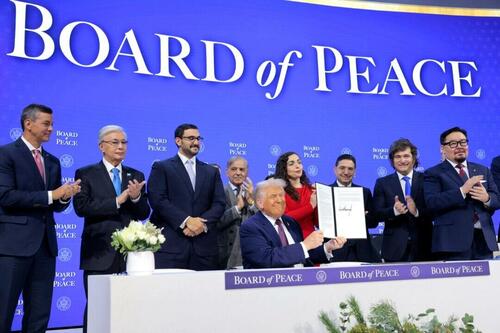

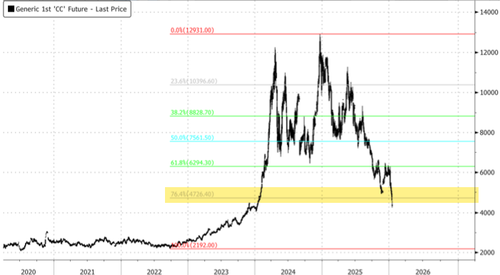
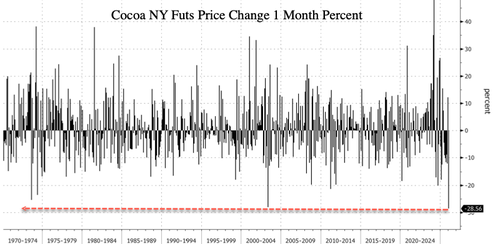





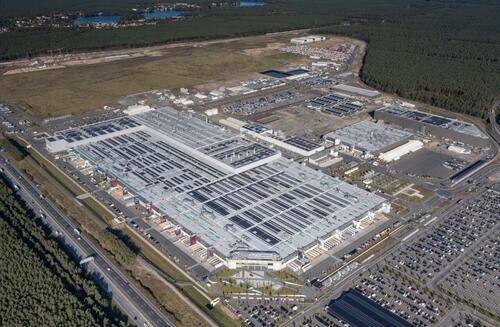


 An aerial photo shows the Nave Photon crude oil tanker, carrying a shipment of Venezuelan oil, docked in Freeport, Texas, on Jan. 16, 2026. Mark Felix/AFP via Getty Images
An aerial photo shows the Nave Photon crude oil tanker, carrying a shipment of Venezuelan oil, docked in Freeport, Texas, on Jan. 16, 2026. Mark Felix/AFP via Getty Images AFP/Getty Images: Iran is prepared for war but ready to negotiate, Iran's FM has made clear.
AFP/Getty Images: Iran is prepared for war but ready to negotiate, Iran's FM has made clear.

 AFP/Getty Images
AFP/Getty Images

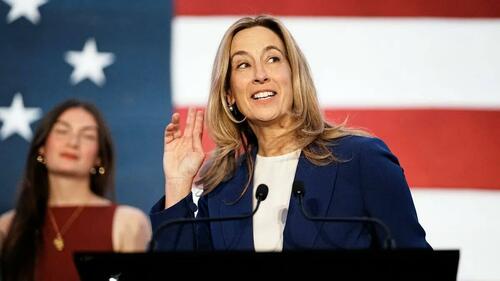


 Eraring coal-fired power station, the largest in Australia, on the shores of Lake Macquarie southeast of Newcastle in New South Wales, Australia. Nick Pitsas/CSIRO
Eraring coal-fired power station, the largest in Australia, on the shores of Lake Macquarie southeast of Newcastle in New South Wales, Australia. Nick Pitsas/CSIRO

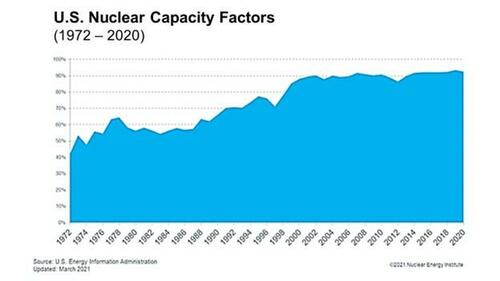

Recent comments